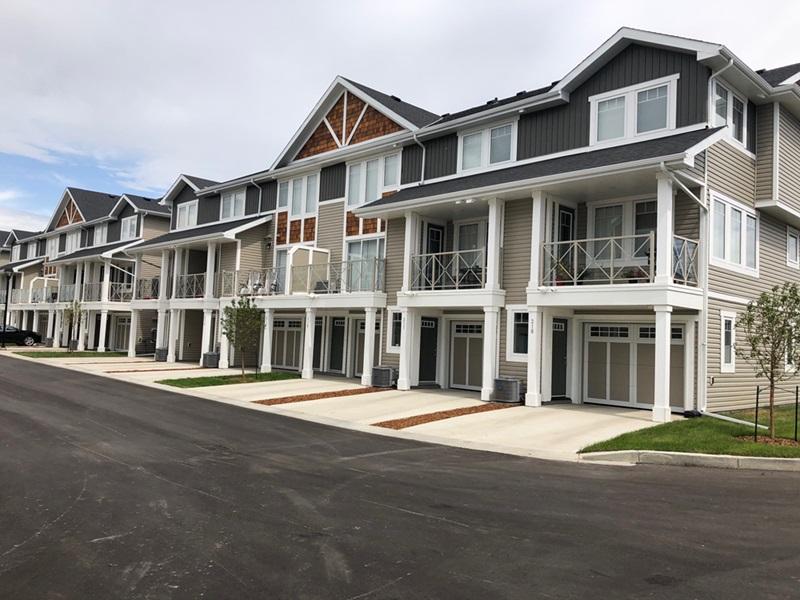
The Q1 2019 REALPAC/FPL Canadian Real Estate Sentiment Survey.
Senior executives’ confidence in the commercial real estate industry is higher in Canada than in the United States, according to the Q1 2019 REALPAC/FPL Canadian Real Estate Sentiment Survey.
The survey, which was conducted in January, captured the thoughts of a wide variety of industry leaders, including developers, owners and asset managers, financial services providers, institutional investors, operators and related service providers. Respondents represented the retail, office, industrial, hotel, multi-family, residential and senior residential asset classes.
The quarterly surveys have been conducted since 2009. They measure executives’ current and future outlook on overall real estate conditions, access to capital markets and real estate asset pricing.
REALPAC’s view of the survey
“Our members see a value to them because they’re different from what the brokers put out,” said Real Property Association of Canada (REALPAC) chief executive officer Michael Brooks. “The brokers put out factual, rear-view mirror data. This is a little more forward-looking because it’s about sentiment.
“It’s not a prediction machine so much as a feeling in the community.”
Capital markets took a major dive in late 2018 before they roared back at the beginning of this year. Since the survey was conducted in mid-January, its results might not be as reflective of the optimism that could have been shown later in the quarter.
“It’s still business as usual,” said Brooks. “Industrial’s hot, multi-family’s hot and retail is generally OK.
“I’m sure there are still some impacts from e-commerce, but the people who have retail assets — particularly food-anchored ones — are doing fine. I think the malls are doing fine and are back-filling the Targets and the Sears of the world just fine.”
Optimism higher in Canada than in U.S.
Overall optimism for current and future conditions rose slightly in Canada. It was down in both cases in the U.S.
“It’s going to be interesting to see what the underlying causes of that are, and what shows up in the Q2 survey,” said Brooks. “It seems like maybe our market is a little more insulated from the changes we’re seeing in the U.S., with their political issues and the government shutdown (which started during the holiday season and carried through to late January).”
Twenty-nine per cent of Canadian survey respondents expected market conditions to be somewhat worse in a year, while 44 per cent expected them to be about the same, 23 per cent expected them to be somewhat better, and four per cent expected them to be much better.
In addition to statistics, the survey features a variety of anonymous quotes about the state of the industry.
“You have to pick your spots and it’s going to take some fortitude to invest in this environment,” wrote one respondent. “Diligence must be better and you have to have courage to execute.”
Asset values remain steady
Asset values remain steady overall. There continue to be slight increases in multi-residential and industrial, but values are generally unchanged.
Forty-nine per cent of survey respondents expected asset values to be somewhat lower in a year, while 36 per cent expected them to be about the same, and 15 per cent expected them to be somewhat higher.
“There’s still a significant amount of money out there to be invested so the demand is still high,” wrote one respondent. “It’s a seller’s market.”
Another executive wrote: “We’ve seen pricing on the high end come off significantly year-over-year, while on the mid-level, it’s been neutral. Lower-level product has gone up.
“On land, it’s held pretty steady, although there’s mounting pressure for declining land values, which is a result of slower absorption and continued increases in construction costs.”
Debt capital and equity are available
Debt capital is available and accessible, particularly for high-quality product, which has resulted in an increasingly competitive lending market.
“Debt capital is still very available for the right sponsor and the right purpose, although scrutiny has increased from lenders,” wrote one respondent. “It’s more available today than it was a year ago because banks have come back into the space.”
The survey indicated those with established track records have no trouble accessing equity, while less-established groups may find it more challenging this year.
“Aside from industrial or residential equity capital, things are tough for retail and office,” wrote one executive. “However, with the right relationships and support from investors, you can still raise quite a lot of equity.”
“Canadian equity is looking outside of Canada due to a lack of availability and they think that they will find higher returns,” wrote another respondent.
FPL Advisory Group compiled the sentiment survey in conjunction with REALPAC.







